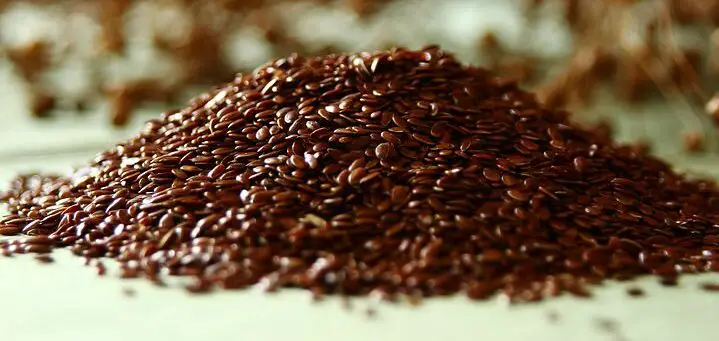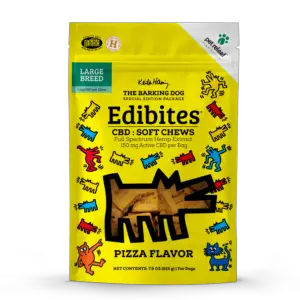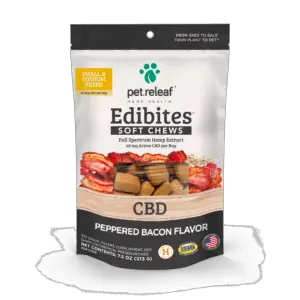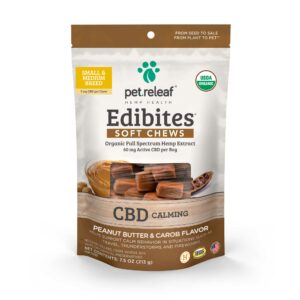
Key points:
- Flaxseed is incredibly high in omega-3 and omega-6 fatty acids, vitamins, nutrients, and fiber;
- The primary benefits of flaxseed for dogs include healthy skin and shiny coat, robust immune system, and healthy digestion;
- Generally, flaxseed is not toxic to dogs. However, you should avoid giving your dog raw unprocessed flaxseed and flax plants since they might cause toxicity or poisoning;\
Both humans and dogs need a complete and balanced diet to feel good and healthy. Therefore, foods rich in vitamins, enzymes, and minerals should regularly appear on your pet’s menu. One way to make your dog’s diet more nutritious is to incorporate flaxseed in it. Flaxseed is considered to be a superfood both for humans and dogs. This natural and organic source of fiber can give a powerful boost to the overall health of your furry friend.
Table of Contents
What is Flaxseed?
Flaxseed, also known as linseed, is the seed derived from the flax plant. The seeds of this plant are small and nutty in flavor, varying from yellow to brown in color. When it comes to its nutrient content, flaxseed has a lot to offer. For example, it is very rich in polyunsaturated omega-3 and omega-6 fatty acids. Moreover, flax seeds contain many other vitamins and nutrients such as vitamin E, B1, B2, and B6, lecithin, iron, potassium, and calcium. And don’t forget: flaxseed is loaded with fiber and protein. All of this can be very beneficial to your dog. For example, alpha-linolenic acid (ALA) is the most important omega-3 fatty acid in flaxseed, and it can have a great effect on your pet’s skin. Dogs suffering from atopic dermatitis, also known as eczema, show significant improvements in their skin condition when their diet is supplemented with flaxseed oil. The National Research Council states that ALA can help improve canines’ general health, speed up cell turnover, and promote improvements in cell functions.

Benefits of Flaxseed for Dogs
In addition to ALA, flaxseed is rich in lignans, which can improve the pets’ cardiovascular health and help fight cancer due to their antioxidant effect. In addition, the anti-inflammatory properties of flaxseed can help keep your pup’s immune system strong, ease symptoms of arthritis, lower blood pressure, improve kidney function, and increase the quality of the dog’s coat and skin. Flaxseed is also known to relieve constipation in dogs. When flaxseed is mixed with water, its mucilage swells up and thickens. This increases both the volume of the seeds and the volume of food pulp in the digestive tract. This results in the stimulation of intestinal activity. At the same time, the mucous substance can protect the stomach and intestinal mucosa.

A study published in the Journal of Veterinary Internal Medicine states that the omega-3 fatty acids found in flaxseed can be used for medicinal purposes. Therefore, it is reasonable to supplement your god’s diet with flaxseed on a long-term basis.
Whole Seeds vs. Flaxseed Oil
Both whole processed seeds and flaxseed oil are valuable natural dog food additives that can positively affect the dog’s health.

Flaxseed oil usually has the most impact on the fur and skin of the animal. Flax seeds, on the other hand, are known to have a strong positive effect on digestion. You can usually get both processed flaxseed and flaxseed oil in your supermarket or drugstore. You also have the option to give your dog processed flax meal, which is simply ground up flaxseed. Flax meal can provide your dog with a huge amount of dietary fiber.
However, there are two more types of flax products, namely raw unprocessed flaxseed and flax plant. You should avoid giving your pet these products since they might cause toxicity or poisoning in dogs.
Are Flax Seeds Safe For Dogs?
 If you don’t give your dog more than the recommended amount, flaxseed will not pose any risk to your dog. Generally, flaxseed is well-tolerated by dogs. However, if consumed in larger amounts, flat seeds may cause flax poisoning, the most common symptoms of which include diarrhea, vomiting, difficulty breathing, extreme fatigue, difficulty walking, rapid heart rate, or even paralysis.
If you don’t give your dog more than the recommended amount, flaxseed will not pose any risk to your dog. Generally, flaxseed is well-tolerated by dogs. However, if consumed in larger amounts, flat seeds may cause flax poisoning, the most common symptoms of which include diarrhea, vomiting, difficulty breathing, extreme fatigue, difficulty walking, rapid heart rate, or even paralysis.
It is normal for a dog to have loose stool after you start adding flaxseed supplements to its meals. This occurs due to the high level of fiber in flaxseed. But if you notice that your dog has developed more severe symptoms, you should call your veterinarian right away and stop giving your pet flaxseed until further instructions.
Some of the factors that can contribute to flaxseed poisoning include:
- Giving your pet too much flaxseed (be sure to follow the vet’s directions very carefully);
- Using improperly processed seeds;
- Consuming too many raw flax seeds;
- Eating flax plants from the garden;
Of course, the easiest way to prevent a pet from getting flax poisoning is to ask your vet about the appropriate form and dose of flaxseed before giving it to the dog. Also, do not forget to hide any bottles of seeds, oils, or supplements from your pet. If you grow flax in your home garden, keep your pet out of the garden beds.
How Much Flaxseed Should I Give My Dog?

Flaxseed is administered to dogs based on their weight. Ground flaxseed is added to the pet’s diet in the following amounts:
- up to 10 kilograms – 2 teaspoons daily
- 10 to 20 kilograms – 2.5 teaspoons daily
- 20 to 30 kilograms – 1 tablespoon daily
- 30 to 40 kilograms – 1.5 tablespoons daily
Since the form of the flaxseed influences how it will metabolize within your dog’s body, the dosage for flaxseed oil is a bit different:
- up to 10 kilograms – 1/4- to 1 teaspoon daily
- 10 to 20 kilograms – ½ to 2 teaspoons daily
- 20 to 30 kilograms – ¾ to 3 tablespoons daily
- 30 to 40 kilograms – 1 to 4 tablespoons daily
Like any new food supplement, you should introduce flaxseed slowly to avoid upsetting your dog’s tummy. You should always make sure that your pet is hydrated before giving it flaxseeds. You can add ground flax seeds to the dog’s kibble or drizzle flaxseed oil over its food.
FAQ
How much flaxseed should I give my dog?
The correct dose of flaxseed for your dog depends on its weight. Generally, small dogs under 20 pounds should consume 2 teaspoons of flaxseed daily. The heavier your pet is, the more flaxseed you will need to give it.
Why is flaxseed bad for dogs?
If given correctly, flaxseed is not bad for dogs. On the contrary, it can be a very beneficial food supplement for your god’s overall health.
Which flaxseed is best for dogs?
There are different types of flaxseed products. Flaxseed oil and processed ground flaxseed are considered to be the best options for dogs, as they can provide your pet with fiber, protein, and essential nutrients.
How often should I give my dog flaxseed oil?
Vets recommend that pet owners give their dogs flaxseed oil daily, as this way, your pet can get the most health benefits from the supplement.
Can I put flaxseed in my dog’s food?
Yes, you can. Essential fatty acids and antioxidants contained in flaxseed are considered to be very beneficial to dogs.




